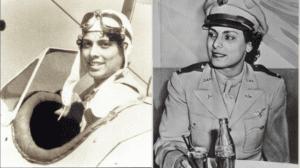Willa Brown: Trailblazing Aviator and Champion of Equality. When we think of pioneering aviators, names like Amelia Earhart and Charles Lindbergh often come to mind. However, there are many other courageous individuals whose contributions to aviation are equally significant but less widely recognized. One such figure is Willa Brown, a trailblazing aviator who not only broke barriers in the skies but also championed equality on the ground.
Early Life and Education of Willa Brown
Willa Beatrice Brown was born on January 22, 1906, in Glasgow, Kentucky. From a young age, she displayed a strong interest in education and a determination to overcome societal obstacles. After earning a bachelor’s degree in 1927 from Indiana State Teachers College (now Indiana State University), she went on to achieve a master’s degree in business administration from Northwestern University in 1937. Her academic pursuits laid the foundation for her diverse and impactful career.
Breaking Barriers in Aviation
Willa Brown’s journey into aviation began when she moved to Chicago in the early 1930s. There, she joined the Challenger Air Pilots Association, an organization founded by Cornelius Coffey and John C. Robinson, which was dedicated to providing African Americans with flight training opportunities. Inspired by the possibilities of flight, Brown enrolled in the Curtiss-Wright Aeronautical University, where she became the first African American woman to earn a commercial pilot’s license in the United States.
Brown’s achievements did not stop there. She co-founded the Coffey School of Aeronautics in 1939 with Cornelius Coffey, who would later become her husband. The school, located at Harlem Airport in Chicago, was one of the few places where African Americans could receive flight training during a time when racial segregation severely limited such opportunities. The Coffey School played a crucial role in training many African American pilots who would go on to serve in World War II, including members of the renowned Tuskegee Airmen.
Willa Brown’s Advocacy and Impact
Willa Brown was not only a skilled aviator and instructor but also a passionate advocate for civil rights and equality. She worked tirelessly to promote the inclusion of African Americans in the aviation industry and the military. In 1941, Brown became the first African American officer in the Civil Air Patrol, a civilian auxiliary of the United States Air Force. Her leadership and dedication were instrumental in lobbying the U.S. government to integrate the armed forces and establish the Tuskegee Airmen program.
Throughout her career, Brown received numerous accolades and recognition for her contributions to aviation and civil rights. She was a founding member of the National Airmen’s Association of America, an organization aimed at supporting and advancing the interests of African American aviators. Her efforts helped pave the way for future generations of pilots and ensured that the skies were open to all, regardless of race or gender.
Legacy of Willa Brown
Willa Brown’s legacy is one of courage, determination, and unwavering commitment to equality. She shattered glass ceilings and opened doors for countless individuals who followed in her footsteps. Her impact on aviation and civil rights continues to be felt today, and her story serves as an inspiration to all who strive to overcome adversity and make a difference in the world.
Wrapping It Up

As we remember Willa Brown, let us celebrate her achievements and honor her contributions to both aviation and the fight for civil rights. She was a true pioneer whose life and work remind us that the sky is not the limit—it’s just the beginning. Until next time remember to Be Social, Fly Private!
